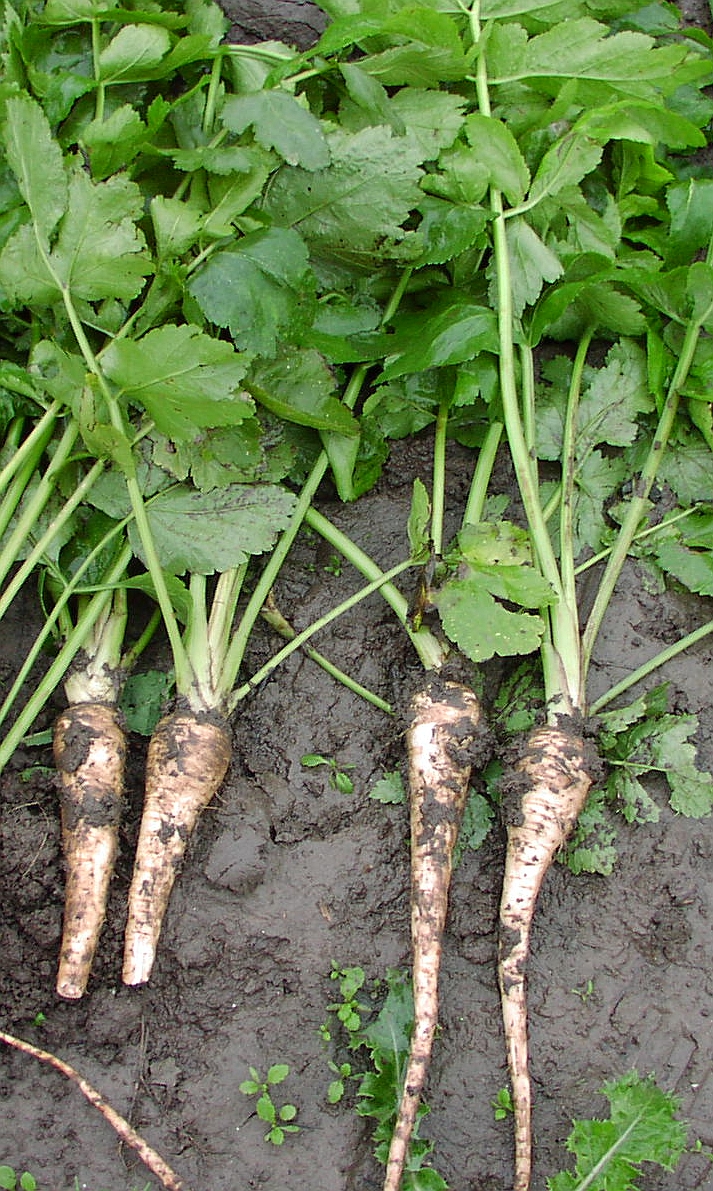Health Benefits of Parsnip
What are the health benefits of parsnip?
Parsnips are a root vegetable that offer several health benefits:
- Nutrient-Rich: Parsnips are rich in vitamins and minerals, including vitamin C, vitamin K, folate, and potassium. They also provide dietary fiber, which is important for digestive health.
- Antioxidant Properties: Parsnips contain antioxidants such as vitamin C and polyphenols, which help protect cells from damage caused by free radicals and may reduce the risk of chronic diseases.
- Heart Health: The fiber and potassium in parsnips can help lower cholesterol levels and blood pressure, reducing the risk of heart disease.
- Digestive Health: The fiber in parsnips helps promote healthy digestion by preventing constipation and supporting the growth of beneficial gut bacteria.
- Weight Management: The fiber content in parsnips can help you feel full and satisfied, which may aid in weight loss.
- Bone Health: Parsnips are a good source of vitamin K, which is important for bone health and may reduce the risk of osteoporosis.
- Immune System Support: The vitamin C in parsnips helps support a healthy immune system, which is important for fighting off infections and illnesses.
- Skin Health: The vitamin C and other antioxidants in parsnips can help protect the skin from damage caused by UV rays and pollution, keeping it looking healthy and youthful.
Overall, parsnips are a nutritious vegetable that can be a healthy addition to your diet. They can be roasted, boiled, mashed, or used in soups and stews to add flavor and nutritional value to your meals.
What are the health risks of parsnip?
While parsnips are generally safe for most people when consumed in moderation as part of a healthy diet, there are a few potential health risks associated with them:
- Allergic Reactions: Some individuals may be allergic to parsnips. Allergic reactions can range from mild symptoms such as itching and swelling to severe reactions such as anaphylaxis.
- Dental Health: Like other root vegetables, parsnips are high in natural sugars, which can contribute to tooth decay if consumed in large amounts or if proper oral hygiene is not maintained.
- Skin Sensitivity: Some people may experience skin sensitivity or irritation from handling parsnips, particularly the leaves and stems, due to the presence of certain compounds.
- Toxicity: Parsnips contain compounds called furanocoumarins, which can cause phytophotodermatitis, a skin reaction when exposed to sunlight. This reaction is rare but can occur when handling large quantities of parsnips and then exposing the skin to sunlight.
- Contamination Risk: Like other vegetables, parsnips can be contaminated with bacteria, such as E. coli or Salmonella, if not handled or washed properly. It’s important to wash parsnips thoroughly before consuming them.
Overall, parsnips are a nutritious vegetable that can be enjoyed as part of a balanced diet. However, individuals with allergies or skin sensitivities should consume parsnips with caution and consult with a healthcare professional if they have any concerns.




